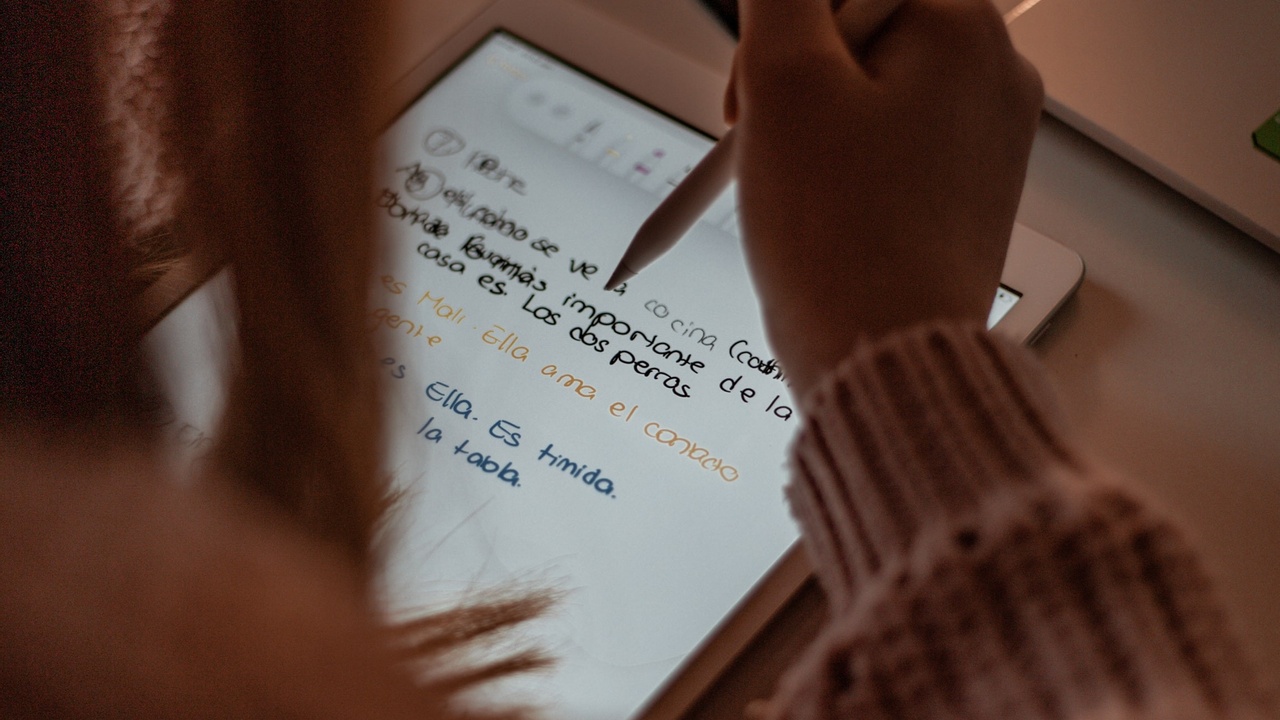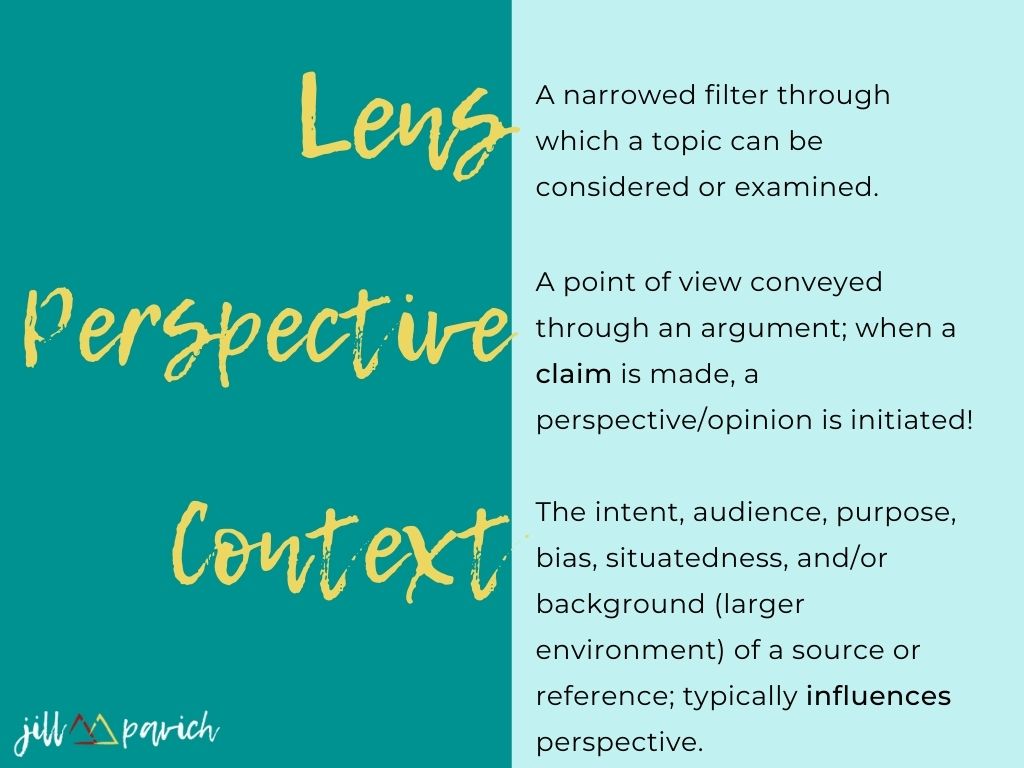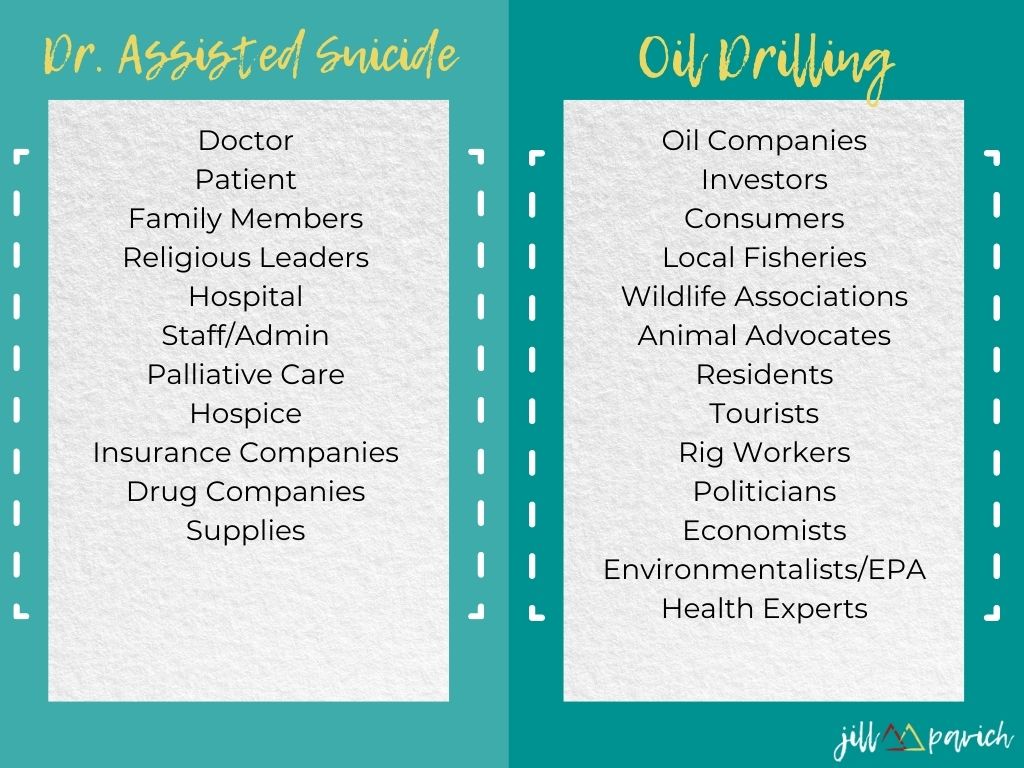Understanding Perspectives

IMPORTANT NOTE:
I originally wrote this post when I was pioneering several brand new, advanced-level curriculums being made available to high school students: AP Seminar, AS Level Global Perspectives & Research, and AS Level English General Paper. And though I will mention these course names during the course of this post, it shouldn't be off-putting if you're not teaching these! Rather, the content found in this blog is applicable to virtually *any* teacher of writing, as it shares some of the most important foundational insights you'll need to teach students the basics of writing! But instead of omitting them, I wanted to maintain my mention of these courses since so many teachers of these courses rely on this post for guidance! Thanks, and happy reading!
Teacher: "Ok, teams, for your research, you'll need to examine the issue through multiple perspectives. Mmm-kay?"
Student (during the presentation of research): "When I did my research from the environmental perspective, I found that..."
In courses like AP Seminar or AICE Global Perspectives & Research, this is all too often the talk. And let me tell you the dog's honest truth...during my first year as an AP Seminar teacher, I seriously thought this was right.
Problem is, 'environment' isn't a perspective. It's a LENS. WithIN that lens, you may have varying perspectives as to whether topic X is environmentally awesome or not, but the environment itself is NOT the point of view.
Sound like a mix-up you're either teaching or allowing in your class right now? Don't stress. It's almost a rite of passage NOT to know what the difference between 'lens' and 'perspective' is during Year One. Hence the reason for this blog post...to pave a smoother for you than I had.
Annnnd it's because I like you, really.
For the sake of a wider audience, let me back up a minute to set the scene-proper...
In each of the AP and AICE research-writing classes mentioned, students are responsible for completing a team research task as one of their requirements; specifically, they work together in groups to identify a research question, then they investigate (and attempt to solve) it. As the teacher noted in the sketch above, students are to examine the issue from multiple perspectives before arriving at a conclusion and/or offering solutions.
The wires of 'lens' and 'perspective' tend to get crossed when groups are forming and students are dividing up research responsibilities. As they talk about the lens they're interested in, they start using this word interchangeably with the perspectives their finding within that lens.
A lens is used to narrow the scope of a student's research efforts; he/she is then responsible for unearthing multiple perspectives WITHIN that lens. After identifying these varying viewpoints, students must then analyze them before arriving at a judgment about the issue as a whole.
Yes, you heard that right...a perspective is a POINT OF VIEW...score! Makes so much more sense now, right?!
Therefore, your rule of thumb is this: 'perspective' and 'point of view' can be used interchangeably; 'perspective' and 'lens' cannot.
And just like that, mystery solved!
But let's break it on down some more! A point of view (aka, a perspective) is a person or group's OPINION, their standpoint on the matter; and the way they 'see' that issue has a lot to do with their surroundings, because where they are, what they believe, and what experiences they've had (to name a few) will undoubtedly shape their understanding, and thus, influence them to believe a certain thing about topic X. In other words...
The context of one's surroundings typically influences his/her perspective.
(Whoa, that was a lot to take in, but hopefully, you're seeing how some of these research buzz words come together, yeah?)

So whose opinion/perspective/point of view is it? Who makes the claim? You guessed it...STAKEHOLDERS. Those individuals who have a relevant say in the matter when it comes to topic X.
- Q: Is that a single person (i.e. a farmer)?
A: Can be. - Q: Can a stakeholder be a group (i.e. National Farmers Union)?
A: Of course. - Q: Can it be an entity (i.e. the Department of Agriculture)?
A: Yup.
All of these can offer a valid perspective in a student's paper about X.
In fact, here's a generic of what it might sound like:
' The Department of Agriculture might claim A...but Farmer Joe begs to differ, arguing B...
moreover, the National Farmers Union agrees with B, but on the basis of B1...'
Here we have several stakeholders voicing their opinions about whether X is a good idea or not. Some viewpoints conflict while others complement, or build upon, one another. Either way, multiple perspectives are clearly present. We're successfully uncovering the conversation. Sweet.
A few really important things to note here, though...
- in the above (generic) italics, we've identified the perspectives of various stakeholders such as a farmer or the state department. Great, we've ID'd the (some)bodies. But we're not finished yet! If this essay is going to score points in the upper echelon of the rubric, students will need to analyze these perspectives then evaluate their worth against the big picture. See?! Still lots to do!
and one other point worth raising... - When a student researches perspectives, make sure they go straight to the source to find the information...make sure they go through the perspective itself to get the juice as opposed to going to a third-party source (i.e. the New York Times telling 'about' how Farmer Joe believes...). Along those same lines, if a student wants to get his/her hands on Chinese perspectives about X, for instance, they shouldn't really be going to an American news source to get it; instead, they should head to a more relevant newspaper OR get it straight from a Chinese-American or Chinese citizen first-hand.
Got it? Goodie.
Ah, deep breath. Ready for class...
Wait...! I got it...good...but how do I teach this noise to teenagers?! This is pretty abstract stuff!
Allow me to share a few strategies for talking perspective with students...
Activities for Teaching Perspective
THE SITUATION ROOM
- Have students form a large circle (seated or standing, up to you).
- Give them a topic or issue that might land on the president's desk, i.e. a meteor is headed straight for planet Earth armageddon-style (oh, c'mon, make it funnnn!)
- Ask them who has something important to say in the matter...who should we turn to for answers so we aren't doomed?!
- Have them go around the circle stating a person, group, or entity of some sort that we'd need to call on for expert knowledge, opinion, or devil's advocacy before we go hitting any big, red buttons.
- The trick to the game is, you can't say something someone else already said! If you can't come up with a stakeholder, you have to step back and you're 'out.' See which students are left standing, and award them accordingly.
In case you don't want to do the armageddon meteor (ok, I get it...), here are two super cool, cheat sheets you can use to get you started with this kind of activity:

Just a few good men (and women) you probably want to speak to when it comes to these issues.
(TIP: I like to do those hackneyed-but-fascinating topics kids tend to gravitate toward in order to get these outta their systems early. So, doctor-assisted suicide? Check. Medical Maryjane? Check. Human trafficking? Check. 'But Miss, I really want to research ... ' 'Oh, but you can't, dear, I'm sorry...we already covered that one.' 'Oh.' Boom. Push-back arguments go up in smoke.)
LARRY & HIS LLAMA
This is a really fun one... So Larry has this llama, right? He loves llamas, but the problem is...he lives in the city. Not exactly conducive to llama lifestyle. You know...llamas need hay. And when they eat the hay, you know what they do. Yep. And then the neighbors get mad, and the landlords get all fired up, and the animal rights activists get their underpants in a bunch... Notice there are several people that have a say in the matter. But then there're the fertilizer companies that like to buy the poo-poo the llama's makin', and the suppliers who make a penny from all the hay it's eatin', and then there's Larry, of course, who loves his pet. Lots of opinions about this lil' ol' llama. Here's a PowerPoint that captures it all. Long live this llama (thank you, Kelly Stromberg!).
Well, friends, I hope this clears the air when it comes to some of that tricky, rubric terminology ;-) No more miffs, myths, or other mangy mess-ups in your instruction! And if I haven't got it right, well, there's always next year...
Jill Pavich
Want to learn more about LENSES? Sign up for my mailing list to access the "Lending a Hand" resource in my Free Resource Library or read my "Lending a Hand" blog post for more information about "perspective".



